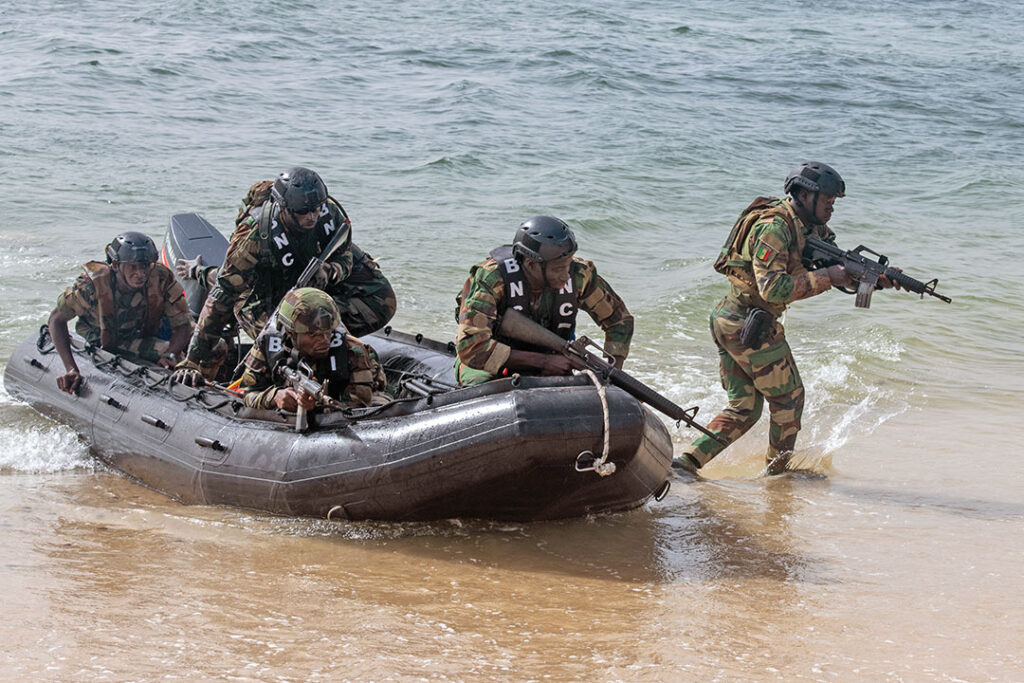Effective communication is key to the success of military training events such as Obangame Express, which builds cooperation to fight sea crimes such as illegal fishing, piracy and trafficking.
Nearly 20 African nations from Cabo Verde to Namibia participated in the two-week exercise. The largest multinational maritime exercise in Western and Central Africa ended May 16, 2025. It included visit, board, search and seizure training in Senegal. Participants practiced tactical ship entries and learned search and evidence-handling procedures. Chief Petty Officer Mass Jallow of the Gambian Navy said the exercise benefited his team.
“We come from different countries, different training backgrounds,” Jallow said. “Sharing techniques and experiences gives us stronger ideas to take home.”
Cabo Verde hosted the exercise, which stretched across five maritime zones from Angola to Senegal. The United States 6th Fleet led the exercise, supported by U.S. Africa Command.
The exercise included more than 30 ships, multiple aircraft and 21 maritime operations centers. It supports the Yaoundé Code of Conduct, which helps maintain situational awareness and fights maritime crime in the Gulf of Guinea, a hot spot for piracy, illegal fishing, drug trafficking and other crimes.
Participants also practiced using SeaVision, a tool that lets users track commercial vessels globally with data from automatic identification system transponders. SeaVision helps countries share maritime information and intelligence, enhance operational capabilities, and detect vessels not transmitting a transponder signal, which often is a sign of illegal activity.
The exercise included a six-day rule of law event to improve interoperability in vessel boarding, evidence collection, case building and prosecution. Participating nations provided a legal representative and maritime operators. The event featured multiple tabletop exercises and a mock trial in which maritime operators testified about their findings.
“We are talking about illegal immigration, illegal fishing, unreported fishing, and also drug trafficking, which are threats to our waters,” Capt. Francisco Moreira, operations director of the Cabo Verdean Coast Guard, said in a news release. “Cabo Verde also invited all the national agencies that work together in these operations. I think that from now on, we will be better prepared for our missions.”

